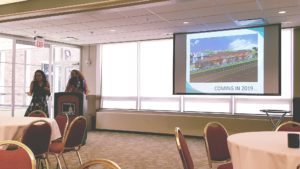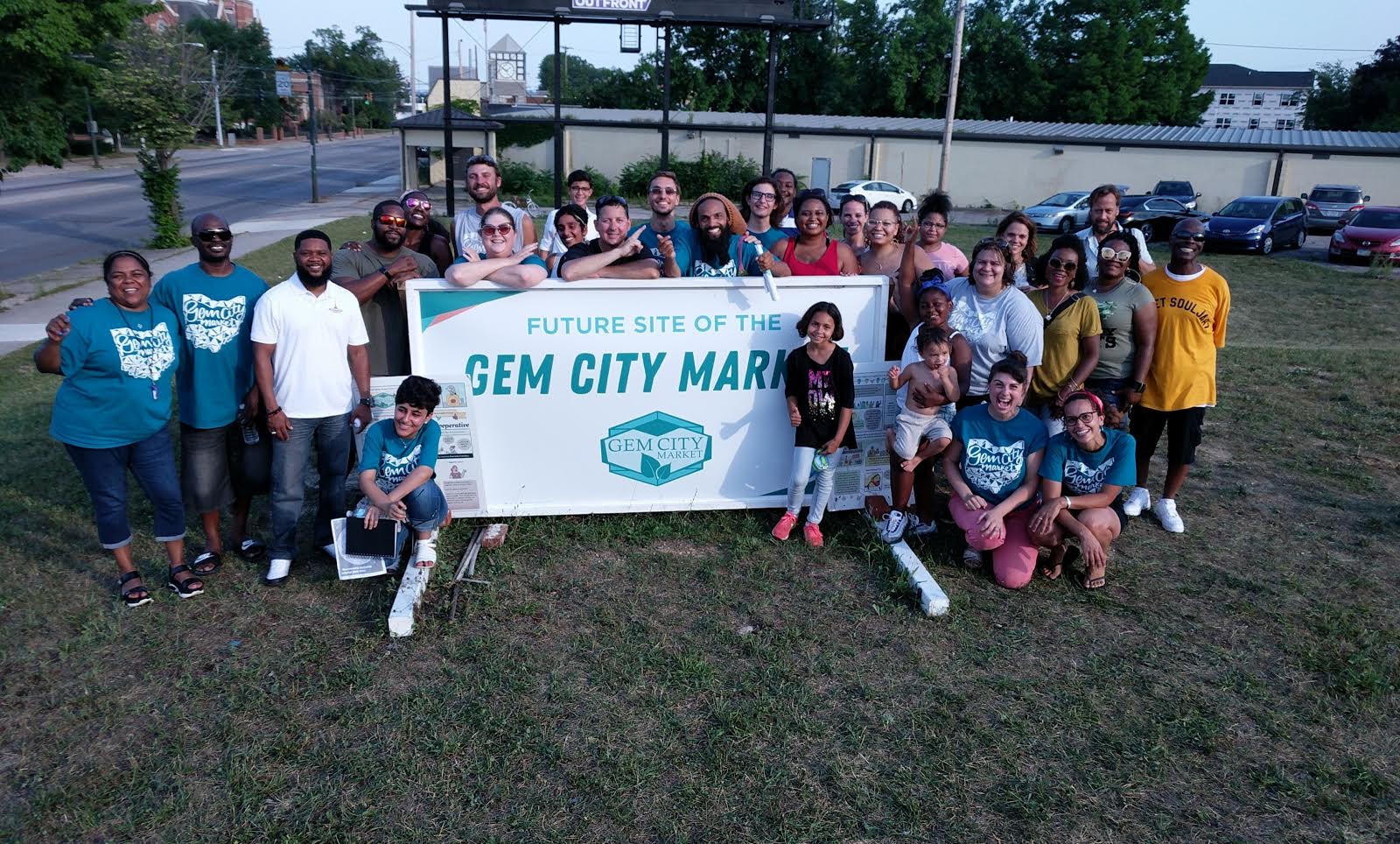Hunger and poverty seem to go hand in hand. It is amazing how many children only eat one meal a day and that meal mostly consists of preservatives, chemicals, dyes and who knows what else.
It seems that if you are impoverished you are more likely to live a life of poor nutrition and hunger.
Well, luckily for the downtrodden there are forces out there that have put plans in motion for a project to try and not only remedy the poor nutrition choices but give something positive to a community that always seems to be without or forgotten.
This positive, life changing project is called the Gem City Market. It will be located in the west side of Dayton where change is sorely needed.
I interviewed one of the people responsible for making this market a reality, Amaha Sellassie; A person known for his political activism, using his voice for urban support and teaching as a professor of sociology at Sinclair College.
He took time for me during his busy day and explained how the market came to be and why.
It all started out when opportunity maps were created by the Montgomery County Health Department. They found that opportunity was divided by the Miami River.
Meaning, the west side of Dayton that is majorly 98 percent African-American, was categorized as lack of opportunity.
 These areas that represent a lack of opportunity are known as food deserts. This shows that residents are 200 percent below the poverty line and have no access to fresh fruit or vegetables in a one mile radius.
These areas that represent a lack of opportunity are known as food deserts. This shows that residents are 200 percent below the poverty line and have no access to fresh fruit or vegetables in a one mile radius.
This results in either taking two or more bus rides to and from a grocery store, or the community sustaining their families on unhealthy options which are the only ones available in the area.
As the Montgomery County board fully grasped the gravity of the situation, they decided to build a market for the community that would be abundant with the nutrition needed to help the neighborhood flourish.
“At first we came up against a wave of objections, negativity, and outright disbelief that we could bring anything that positive to the west side of Dayton,” Sellassie said.
Sellassie and his team persisted and visualized the possibility of the community, having a shared hope and positive change that would have a ripple effect through generations.
“The market is going to feature a health clinic, a community room and a full service grocery subsidized pricing,” Sellassie said. “Which means that the stable goods will be sold as close to cost as possible.”
In layman’s terms, those who have less income will now be able to purchase more goods that they need to survive. There will also be featured programs that reward those who buy healthy produce and they will be rewarded with double produce.
“Lastly this market is a co-op, it’s community owned and worker owned,” Sellassie said. “This is paramount in Dayton. This is one of the first neighborhood owned and run entities.”
This is possible due to a hybrid pricing formula where higher cost items’ profits will be used to purchase lower cost items. This market is a stepping stone into making a side of Dayton that was neglected come alive once again.
The removing of Good Samaritan Hospital was devastating to the west side of Dayton. The market works toward a mission statement of fulfilling an essential need in a community that many take for granted.
For those who want to feel even more a part of this project while affecting change in the community you can go to GemCityMarket.com. There is a design survey that will give invested Daytonians a say in the design of this upcoming market.
Several people I have talked to cannot wait for the market to be fully built and opened, and are looking forward to becoming a part of something that is a positive step in the right direction.
This market isn’t just about providing options, it’s about making something for the community out of nothing. It aims to give a new sense of pride and purpose to people who feel that society does not care about them.
The day that the walls are put up and the roof is set on the Gem City Market is growing closer, and it will provide a service to those on the “other side” of Dayton. As their slogan says, “It’s more than a market, it’s a movement!”
 Justin A. Baker
Justin A. Baker
Staff Writer


